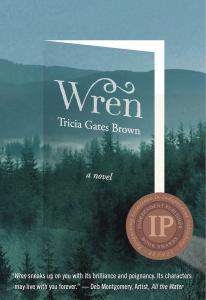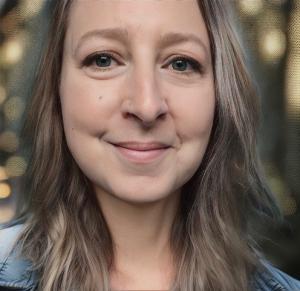
Forgiveness is slow. Have you tried to forgive someone who devastated you with no real regrets? How can we whip up forgiveness like the gods, my fellow mortals, when such things take time? How can we expect forgiveness from others when we apologize with no real regret?
In the months following my own devastation by someone I loved, on the heels of a stealthy betrayal, I played with forgiveness. Isn’t that what we’re supposed to do when someone apologizes? And I heard many apologies. But the subtext had a cancelling effect: I’m sorry, but I’m not going to stop.
Months, even years, after my ex and I had separated then divorced, we often soaked in the hot tub after a day of installing gardens together—which we did as co-owners of a landscape business that disbanded around the pandemic. We would soak and I would sing along with tunes from my playlist. Because my hot tub sat behind my house, which sat amid a coastal rain forest, there was also the occasional owl song, sometimes the patter of raindrops on the covering of the hot tub patio. On clear nights, the stars were visible above a clearing in the trees. If not for the pain that followed us like a storm cloud anchored to our heads, the scene would have been magical.

Can “Forgiveness” Come Too Soon?
One night, a year or two after he moved out, before we signed our names on divorce papers, a favorite tune came on Spotify. A song that invariably elicits my harmony, and that I love to sing. When alone, I belt out the chorus whenever it plays. But this night, as I started in to singing, I began to weep. I couldn’t go on. Lori McKenna sang her chorus: If you ask for my forgiveness, if you call my name, I will come. If you ask for my love, I will give you some. I couldn’t eke out a note. The words broke my fully broken heart all over again. At that moment, more than at any time, I felt the crush of longing to be able to forgive. But it was too soon. The circumstances wrong. The betrayal ongoing.
Eight years after this, I can say I did make it to forgiveness. But for me to get there, the stakes had to be substantially lower than they were on that day, when the pain was so fresh and the stakes for my life dramatic. I know that just because forgiveness is slow, doesn’t mean it is not coming. Forgiveness is a process, and we cannot leap-frog our way to it or fake it. Such dissembling won’t serve anyone, and it won’t serve love. Things take the time they take. When we cannot forgive someone…yet, it is okay to acknowledge this.
Last year, eight years after our separation, my ex wrote to me with the first apology that felt genuine. Though I had already forgiven him by this time, and though my heart felt almost healed, the apology was a gift. It is something I will always remember. He was working on sobriety; and his program had him taking stock, making amends. He asked for my forgiveness for “all the time I made you suffer.” He went on to take responsibility for all that had happened, and for my pain. He hoped there was a place “in your heart to pardon me.”
I already had. And yet, that true apology was one of the greatest gifts of my life. Now every time I sing along with McKenna, I remember it.
Wren, winner of a 2022 Independent Publishers Award Bronze Medal
Winner of the 2022 Independent Publisher Awards Bronze Medal for Regional Fiction; Finalist for the 2022 National Indie Excellence Awards. (2021) Paperback publication of Wren , a novel. “Insightful novel tackles questions of parenthood, marriage, and friendship with finesse and empathy … with striking descriptions of Oregon topography.” —Kirkus Reviews (2018) Audiobook publication of Wren.















